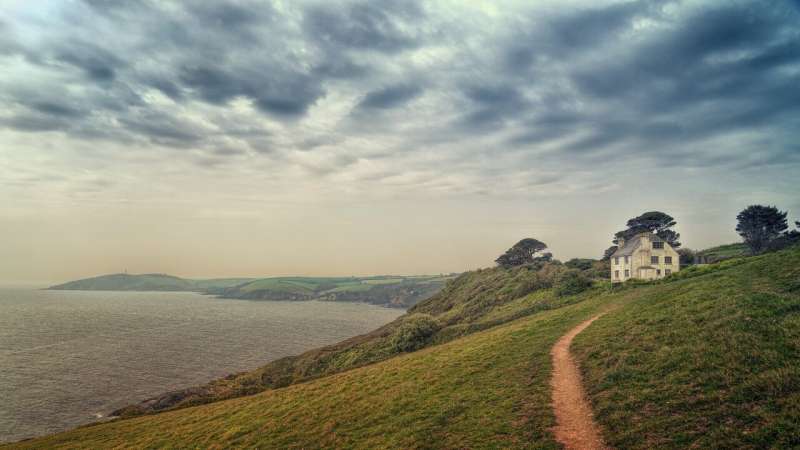Science
Local Communities Can Boost Biodiversity Through Green Space Management

Collaborative management of green spaces by local communities can significantly address the ongoing biodiversity crisis, according to a recent study from the University of Exeter. Published on November 19, 2025, in the journal People and Nature, the research emphasizes the importance of understanding how communities value and utilize these areas. Local councils in the UK face increasing pressure to enhance public access to green spaces. This not only aims to boost biodiversity but also supports public well-being.
Effective stewardship of urban green spaces has been shown to yield multiple benefits, including enhanced biodiversity, reduced flooding, improved public health, and new business opportunities. The study outlines strategic approaches for councils to ensure the long-term sustainability of both new and existing green spaces.
Community Involvement Is Key
Fay Kahane from the University of Exeter highlighted that collaborative planning with local communities is essential for successful stewardship. She stated, “To achieve effective stewardship of urban green spaces, it’s critical local governments plan collaboratively with communities. Stewardship needs to reflect local values, whether that’s well-tended flowerbeds or wilder, biodiverse spaces.”
The research identified potential “easy wins” in areas with existing gardening groups. However, in more deprived neighborhoods, financial investment is crucial. Council-funded specialists, such as ecologists, are necessary to understand diverse local perspectives and to create easily maintainable, vibrant green spaces that enhance community well-being.
The study provides a framework for local governments to future-proof urban green space planning through continual investment, community participation, and sensitivity to local contexts.
Conditions for Successful Stewardship
The research pinpointed five key conditions that influence effective stewardship:
1. **Neighborhood Capacity**: This includes factors such as deprivation levels and the presence of volunteer gardening groups.
2. **Landscape Quality**: Features like mature trees, heritage elements, and scenic views contribute to the overall value of green spaces.
3. **Resident/Government Relations**: Historical tensions between residents and local authorities can affect collaboration.
4. **Sense of Place**: The emotional connections that individuals develop with local green spaces play a significant role.
5. **Financial Input**: The cost associated with enhancing green spaces is a critical factor.
Additionally, the study addresses changing attitudes towards “tidy” versus “messy” urban nature. It suggests that maintaining visible “cues to care,” such as regularly mowed paths alongside longer grass areas, can promote biodiversity while fostering community pride.
Councilor Loic Rich, responsible for Environment and Climate Change at Cornwall Council, commented, “This research reinforces what we see on the ground—green spaces thrive when they reflect the needs and values of the communities who use them. By working closely with residents and investing in long-term stewardship, we can create biodiverse, resilient spaces that support both nature and well-being.”
The research encompassed 25 publicly accessible green spaces across nine towns in Cornwall. Researchers employed a rigorous Qualitative Comparative Analysis (QCA), which involved on-site interviews, online research, and biodiversity assessments to evaluate each site based on management, community action, inclusivity, and social and biodiversity gains.
Karen Hall, who initiated volunteer gardening sessions at the Beacon site in Falmouth, shared her experience: “Funding for open space management is often limited, and I wanted to ensure this magnificent space and the valuable plants in it were well-managed. Setting up the monthly volunteer sessions has been rewarding, allowing the plants to thrive while also bringing together community members who appreciate our efforts.”
Hall expressed satisfaction with the impact of the volunteer sessions, stating they not only enhanced the Beacon but also created a sense of community among participants.
For more information, refer to the study titled “Enabling effective urban green space stewardship through planning: a Qualitative Comparative Analysis in Southwest England,” published in People and Nature in 2025.
-

 Lifestyle4 months ago
Lifestyle4 months agoLibraries Challenge Rising E-Book Costs Amid Growing Demand
-

 Sports4 months ago
Sports4 months agoTyreek Hill Responds to Tua Tagovailoa’s Comments on Team Dynamics
-

 Sports4 months ago
Sports4 months agoLiverpool Secures Agreement to Sign Young Striker Will Wright
-

 Lifestyle4 months ago
Lifestyle4 months agoSave Your Split Tomatoes: Expert Tips for Gardeners
-

 Lifestyle4 months ago
Lifestyle4 months agoPrincess Beatrice’s Daughter Athena Joins Siblings at London Parade
-

 World4 months ago
World4 months agoWinter Storms Lash New South Wales with Snow, Flood Risks
-

 Science3 months ago
Science3 months agoSan Francisco Hosts Unique Contest to Identify “Performative Males”
-

 Science4 months ago
Science4 months agoTrump Administration Moves to Repeal Key Climate Regulation
-

 Business4 months ago
Business4 months agoSoFi Technologies Shares Slip 2% Following Insider Stock Sale
-

 Science4 months ago
Science4 months agoNew Tool Reveals Link Between Horse Coat Condition and Parasites
-

 Sports4 months ago
Sports4 months agoElon Musk Sculpture Travels From Utah to Yosemite National Park
-

 Science4 months ago
Science4 months agoNew Study Confirms Humans Transported Stonehenge Bluestones









